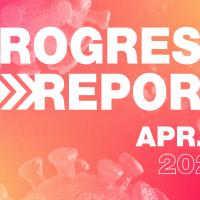As the world struggles to combat COVID-19, simple hygienic practices like hand washing have become our first line of defense. The spread of the virus has made many of us realize how important these practices are, as well as interconnected humans are, both in our communities and on a global level.
While most adults are well aware of the dangers of foregoing proper hand washing, children are a different story. To put it bluntly, kids are filthy little animals. Their idea of good hand hygiene looks more like licking germs off of their hands rather than scrubbing them.
To kids, hand washing just isn’t a priority, and they don’t understand the ramifications of not doing so. Parents have to show them the correct steps to take and remind them how important washing hands is, in order to reinforce good behaviors.
While normally these constant reminders serve as little more than a nuisance to most parents, the spread of COVID-19 has brought the dangers of poor hand hygiene into the limelight.
As we’re all learning to live in this new bleach-wiped and toilet paper-deprived world, the makers of SoaPen, a hybrid between liquid soap and a marker, are hoping that their product gets more kids to wash their hands by making it fun for everyone.
Little-Known Dangers of Poor Hand Hygiene
Long before the COVID-19 outbreak, the lack of education on the importance of washing hands was already a serious concern. Despite the fact that there are incredibly simple and cheap solutions for avoiding preventable diseases, far too many continue to forego teaching and practicing proper hand washing.
It may come as a surprise that diarrhea is the second leading cause of death among children under the age of five. There are approximately 2.2 million diarrhea-related deaths annually. In their advanced stages, diarrheal diseases can cause fatal complications through severe dehydration.
The most effective means of prevention against these diseases are safe water, hygiene, and sanitation. Studies have shown that washing hands with soap can reduce the occurrence of diarrhea by up to 30%.
The founders of SoaPen grew up in India, where a lack of good hygienic practices has long plagued children. Diarrheal diseases killed nearly 500,000 Indian children in 2015 alone, and SoaPen’s creators experienced that devastation first-hand.
They decided to visit schools throughout the country to identify what type of hygiene education was being shared with children, and they left shocked and disturbed by how few teachers understood how important proper hand washing is. Recognizing this as a very fixable problem, they set to work creating the SoaPen.
Making Hand Washing Fun
The SoaPen is a simple yet effective tool for teaching proper hand washing to kids. It dispenses colorful soap that allows children to draw on their hands. To remove the traces of their drawings, kids then wash their hands for the ideal span of 20-40 seconds.
The SoaPen is affordable and compact, making it easy for both parents and teachers to keep on-hand. And behavioral science supports the simple ingenuity of the product.
Katherine Milkman, associate professor at the University of Pennsylvania’s Wharton School, published a study on a self-control strategy she calls “temptation bundling.” The idea is to pair a practice that we enjoy with a behavior that we would like to reinforce.
For example, Milkman’s study paired listening to a guilty-pleasure audiobook such as The Hunger Games, with exercising at a gym. The results showed that participants who had access to the audiobooks while at the gym made 51% more visits than those who did not.
Pairing something that kids enjoy (such as drawing), with a behavior you’d like to reinforce (such as hand washing), could have a seriously positive impact on improving their hygiene habits. If kids can associate the hand washing process with something fun, science says they might actually be more likely to turn the practice into a habit.
Protecting Kids from a Pandemic
While the founders of SoaPen certainly didn’t create the soap with a looming global crisis in mind, their invention has the potential to play a crucial role in staying safe during the COVID-19 outbreak.
A recent post by Medical News Today iterates the fact that the first line of defense in preventing viral infections, especially those which can be transmitted in droplets from coughs and sneezes, is proper hand washing technique.
The article shows that around 30% of people don’t wash their hands after using the restroom and, of those who do, only 50% are doing so correctly. Many who do actually wash their hands do so without soap and spend less than 15 seconds washing, rendering it somewhat useless.
The study continues with a statistic that at most, only one in five people in an airport have properly washed their hands. While in the midst of a global pandemic, statistics like these illustrate the very serious global ramifications of poor hand hygiene.
On a positive note, COVID-19 has made more and more people realize the importance of proper hand washing. In a globalized world in which information and illness can spread increasingly fast, maybe ideas like SoaPen can lead to a cleaner and safer future.
The SoaPen makes a simple yet possibly life-saving practice much less of a hassle, and it could have an enormous impact in helping prevent future pandemics.
For more interesting news about the people and ideas that are changing our world, subscribe to Freethink.


